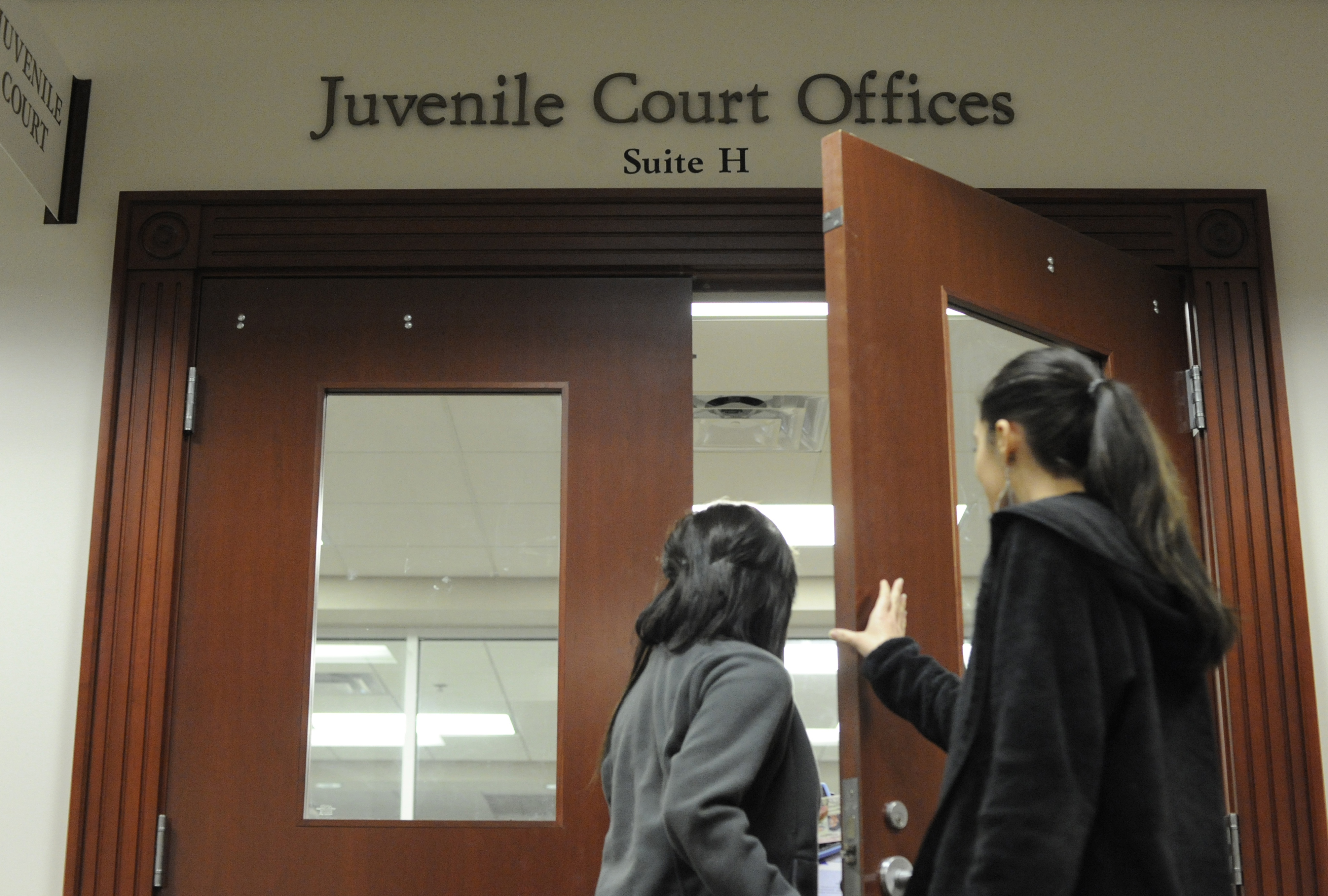AT A GLANCEThe Child Protection and Public Safety Act legislation includes these proposed changes to the Georgia juvenile code:• Creates a Child in Need of Services process that will oversee noncriminal juvenile offenders through state agencies or Juvenile Court.• Gives children more rights.• Clarifies the definition of abuse.• Child would have proper representation by an attorney if he or she disagrees with a guardian often appointed by the court to oversee the child's well-being.Source: The Child Protection and Public Safety Act
The repeated detention of teens and adolescents for breaking noncriminal rules puts Georgia at risk of losing $2 million in federal funds, local experts say.
Georgia law allows adolescents who wind up in the juvenile court system for infractions such as skipping school or missing curfew to be treated similar to juveniles who commit crimes and are locked in detention centers, said Dr. Sandra Stone, vice president of academic affairs at Dalton State and a researcher on juvenile justice reform.
But federal law says juveniles who obey court orders shouldn't be locked up but dealt with through other means.
Detaining nonviolent juveniles is risky for the adolescents and frustrating for judges, who sometimes have no alternatives, she said.
"What you really need are some resources to provide options for the judges," she said. "The courts aren't trying to intentionally do this; it's just the best alternative."
After several years of talking about overhauling the juvenile code, state lawmakers this session hope to pass a bill that would create a better support system for youthful offenders and potentially save the state money.
If the legislation -- filed as the Child Protection and Public Safety Act -- becomes law, it will create a new process called Child in Need of Services to oversee juveniles who are considered low or no risk, officials said.
Under the plan, state agencies would monitor adolescents who fall into the category by creating a case plan for each individual and offering intervention programs, said Kirsten Widner, director of Policy and Advocacy for the Barton Child Law and Policy Center at Emory University. That could mean anything from anger management to after-school programs.
"Instead of saying, 'You've done something wrong,' it says 'it looks like you need some help.'" Widner said.
CLOSE TO THE LINE
An estimated 1,391 juveniles who committed noncriminal offenses were placed in the youth detention systems across Georgia in 2011 pending a court disposition, according to figures from the Department of Juvenile Justice.
Federal law severely limits the amount of time these offenders can serve detention, Widner said. But states are given a certain range of noncompliance based on population before they are considered in violation of federal law.
States that exceed the range are in danger of losing their funding, which flows down to counties for court services and prevention programs, said Joe Vignati, an administrator with the Governor's Office for Children and Families.
From 2006 to 2010, Georgia had a drastic jump in how many status offenders were reported to be locked up, figures show. But Vignati said it isn't clear whether the increase is because of more incidents or better data collection.
What is clear is that locking up nonviolent juveniles increases the risks to their well-being, experts say.
"These kids are not really posing a risk to the public; often they're more the victims," Stone said.
Many of these children are victimized when they enter a detention center, or they pick up bad habits from their peers, she said.
Walker County Juvenile Court implemented a new program to try to keep children who repeatedly skip school out of the juvenile system and saw great results, said Juvenile Judge Bryant Henry. The program also tries to focus on including the parents.
And that's what experts and lawmakers hope to do with changes to the juvenile code.
SOLUTIONS
Options such as safe houses, after-school and recreational programs, anger and behavior management counseling and therapy are some of the ways to alter behavior and keep adolescents from returning to court, experts and lawmakers say.
"As courts are trying to handle their needs, sometimes they over-discipline by taking them into custody," said Rep. Wendell Willard, R-Sandy Springs, who is sponsoring the House bill. "The hope is to have children remain in the community as much as possible."
The whole family has to be involved in the process because often what's going on at home reflects how the child acts out, Stone said.
Besides the benefits to the family, these alternative programs are intended to save the state money.
It costs roughly $250 a day to house a juvenile, but an alternative treatment like multisystematic therapy would cost $180 less, according to the study "Status Offenders in Georgia's Juvenile Justice System," which Stone helped lead.
Experts say the state may have to reallocate money from the current detention centers to pay for the alternative programs.
"Probably everybody across the country, they wish they had more options," Henry said. "But somebody's got to find a way to pay for that stuff."

